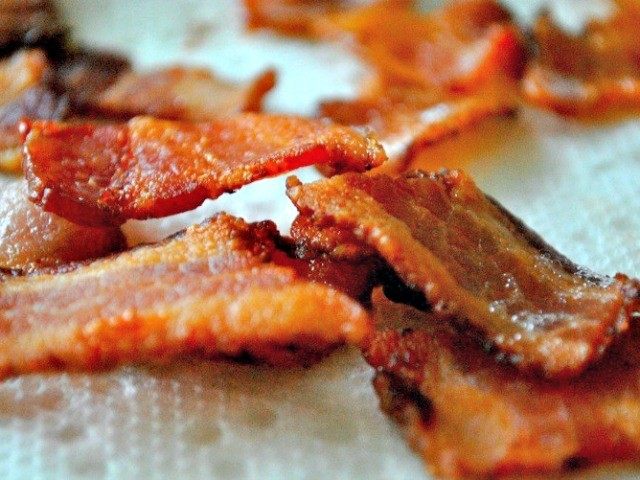The World Health Organization is launching another broadside in the culture wars, declaring red meat a health risk and asserting that “processed meats,” including bacon and hot dogs, were cancer risks. To ensure everyone got the message, WHO put bacon into the same category of cancer risk as smoking or asbestos.
That last bit is really nothing more than PR. It does not mean, as the WHO implies, that eating bacon is anywhere nearly as dangerous to your health as smoking or installing insulation in the 1950s. It simply means that eating certain amounts of bacon every day can, by itself, increase your risk of getting a particular type of cancer.
Even that “by itself” is misleading because few studies of health can isolate the innumerable variables that affect our well-being. Genes, overall diet, physical activity, lifestyle and socio-economic factors all have strong supporting roles in our health risks. Few bacon eaters have exactly the same health profiles, for example.
Let’s, however, for fun, take the WHO at its word and assume that bacon joins smoking and asbestos in the dangerous game of cancer-roulette. How much is the risk?
Smoking increases your risk of cancer by 2,500 percent. Eating two pieces of bacon every day, or one hot dog every day, increases your risk of cancer by 18 percent. Technically, they all increase your risk of cancer. They aren’t even remotely in the same ballpark though, are they?
Keep in mind, eating a hot dog every day doesn’t increase your risk of cancer to 18 percent, but increases your risk higher than it would be if you didn’t eat that frankfurter at all. The WHO is peddling “relative risk” here.
You have an X risk of getting cancer, basically because you are alive. If you eat bacon every day, however, your relative risk is 18 percent higher than X.
According to the American Cancer Society, you have a 4.84 percent chance of developing colorectal cancer in your lifetime. According to the WHO, however, if you eat two slices of bacon or one hot dog every day, your risk of developing colorectal cancer goes up to 5.7 percent.
In other words, you have around a 5 percent chance of developing cancer now. If you eat bacon or hot dogs every day though, your chance rises to almost 6 percent.
“If this is the level of risk you’re running your life on, then you don’t really have much to worry about,” Alfred Neugut, an oncologist and cancer epidemiologist at Columbia, said.
Even that, almost negligible, increase in risk arises if you each 50 grams of processed meat a day. That is roughly two slices of bacon or one hot dog every day or your life. According to a National Health and Nutrition Examination survey, though, Americans eat less than half that amount.
In other words, we would all have to double the amount of bacon we eat before the WHO report had any meaning for us.
Many stories in the media have an equally interesting flip-side. Simply reverse the frame of reference to unveil an entirely new story. Doubling our intake of bacon increases our chance of getting cancer from about 1-in-20 to about 1-in-20.
Likewise, eliminating bacon from our diets completely, reduces our chances to getting cancer from about 1-in-20 to about 1-in-20. On Monday, the media could have just as legitimately reported that the WHO found that doubling the amount of bacon we eat has almost no impact on whether or not we get cancer.
Of course, its hard to keep the research grant money flowing to WHO for such a report. As usual, its best to take these health reports with a pinch of salt. That is, I suppose, if a pinch of salt is still healthy.

COMMENTS
Please let us know if you're having issues with commenting.